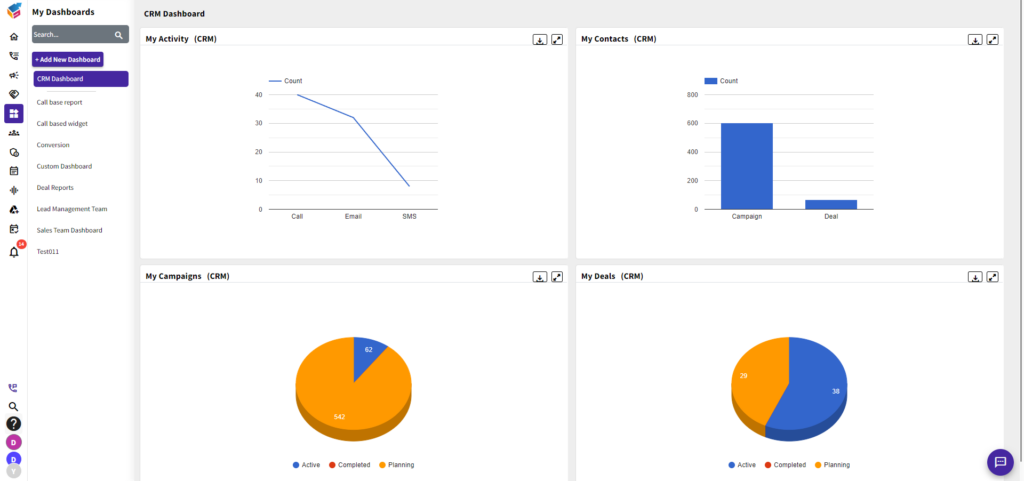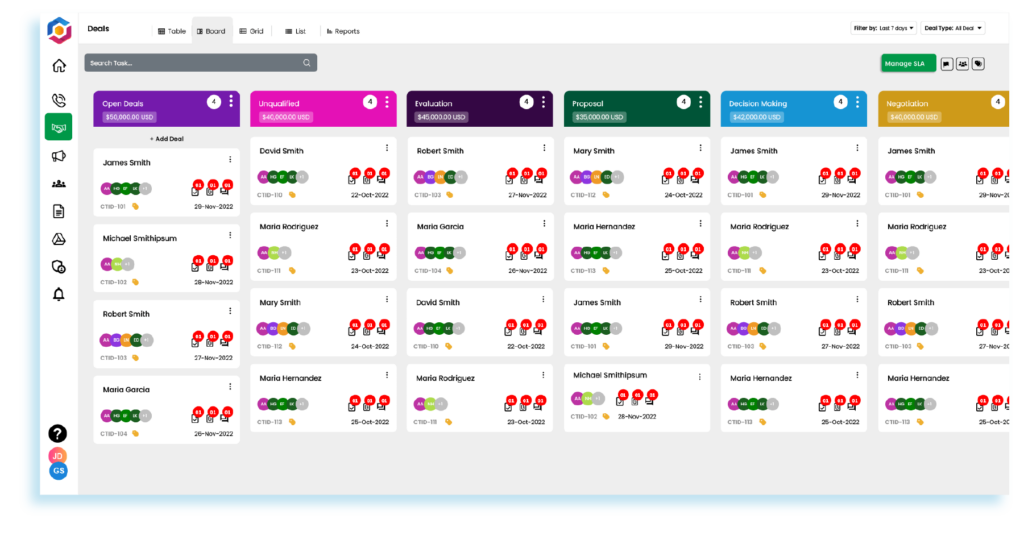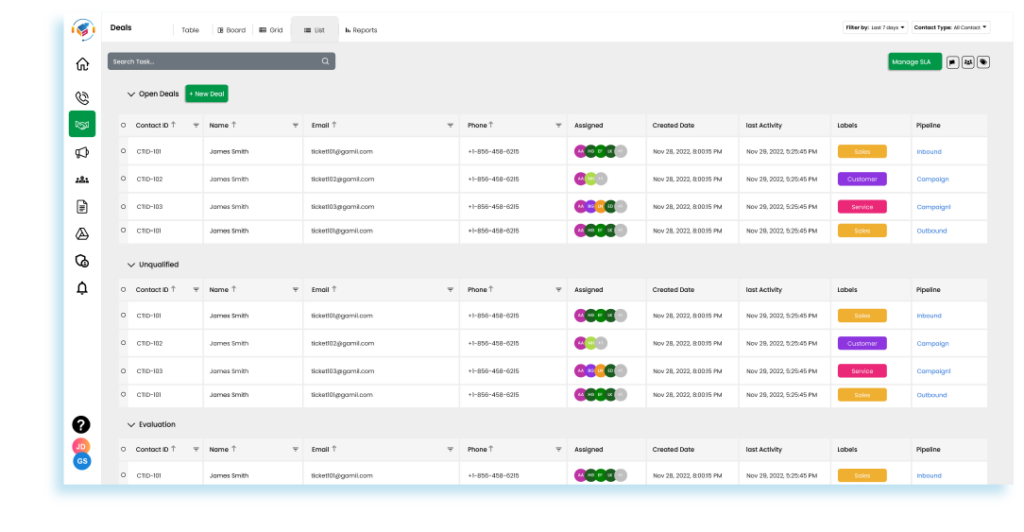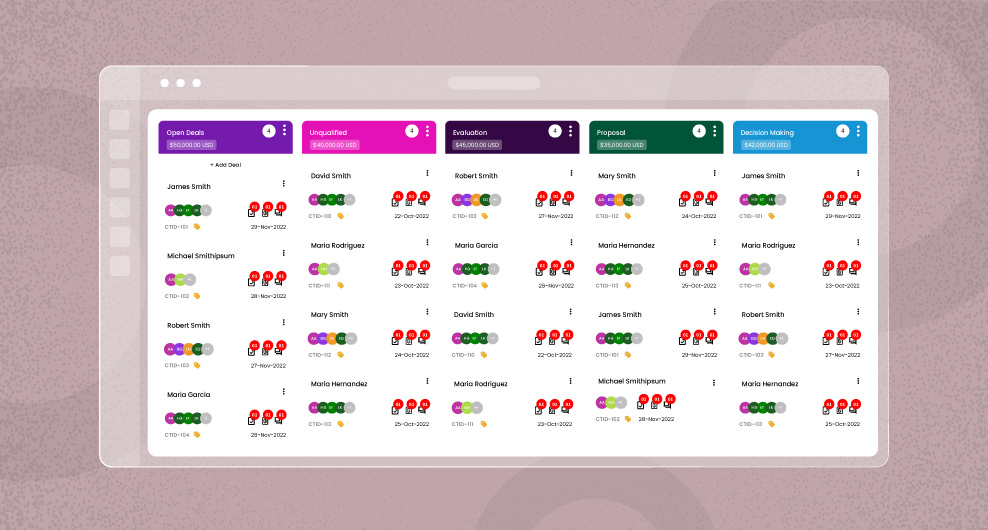Table of Contents
What is a CRM?
Customer relationship management (CRM) is a system that allows organizations to track and manage customer interactions. CRM software can be used by companies to identify potential customers, create a customer profile, organize contact information, keep track of past transactions and more.
CRM sales are typically composed of three modules: marketing automation, sales automation and customer service automation. These modules are interconnected in order to provide the best user experience possible. It offers real-time data that can be analyzed in order to improve performance or make decisions on future strategy.
Why is a CRM Important?
A CRM is a customer relationship management software that has the main goal of helping businesses to organize and manage their sales and marketing data. It also helps them to create customer profiles, identify sales leads, and manage their marketing campaigns.

The most common types of CRMs are:
- Relationship management software: This type of CRM can be used for managing a company’s current customers and prospects. It can also be used for managing the company’s sales team, by providing them with information on the contact history with clients.
- Marketing automation software: This type of CRM is used by companies that use online marketing techniques like email marketing or search engine optimization (SEO). Marketing automation software allows companies to create automated messages based on the actions taken by potential customers on their website.
- Sales force automation (SFA) software: This type of CRM is mainly used by companies that use a sales force model for selling products or services.
Different Types of CRMs
A CRM is a system used to manage customer relationships. It typically contains a database of information about the customers and their contact with the company, such as purchase history, contact details, and preferences.
There are two types of CRMs that exist in the market today – on-premise and cloud-based. The on-premise CRM is installed on your own servers while the cloud-based CRM is hosted by a third party.
The benefits of using an on-premise CRM are that it’s cheaper to set up and it’s easier to customize than a cloud-based one. However, it also means you need to manage your own hosting infrastructure which can be costly and time consuming. On the other hand, with a cloud-based CRM you have access to more features that you might not find in an on premise one but you will have less control over how these features work for your business which may be frustrating.
How to Implement an Effective Strategy with Your New Sales Software System?
An effective sales strategy should be based on the data that you have at hand. There are three key areas to focus on in order to get the most out of your new sales software system:
- Decide what data you want to track and how you want it to be used.
- Create a plan for how you will use your new system.
- Implement these strategies with an actionable plan.
What are the Benefits of Using CRM Software/ Tools?
There are many benefits of using sales software and tools. One of the main reasons is that it can help you save time. For example, if you want to send out a new product announcement, a marketing automation tool can actually do this for you automatically.
Sales software is a way to help with the marketing and sales process. It can be used for lead generation, lead nurturing, and lead conversion.
It can also be used for sales forecasting, sales pipeline management, forecasting and budgeting.

There are many benefits to using a sales software.
- The most important benefit is that it helps you manage your time more efficiently so that you can focus on the most important tasks at hand.
- Another benefit of using a sales software is that it allows you to create reports more easily which will help with your goal setting and long-term planning process.
Identifying the Ideal Software for your Business Needs & Goals
When you are looking for a sales management software solution, you should always keep in mind the following points:
- The size of your business.
- The nature of your business.
- What are your goals?
- What is your budget?
- What is the scope of the project?
- How much time do you want to spend on it?
- How important is flexibility and customization to you?
Choosing the Best Sales CRM for Your Business with 5 Critical Questions to Ask Yourself
- Do you want to track your leads, manage your sales opportunities, and close deals?
- What kind of customer data do you need to store?
- What kind of CRM system do you want to use?
- What are the best features that a CRM should have?
- Which CRM system is best for your business?
Finding the Best Sales CRM for Your Business
The best sales CRM for your business will be the one that is the most suitable to your business needs. It will also be the one that fits your business model.
There are many different types of sales CRMs available in the market, and it can be difficult to choose which is right for you. One option is to compare each of them based on their features and their suitability to your company’s needs.

Conclusion - Is it Time to Invest in an Updated CRM?
The conclusion of this article is that CRM is a necessary tool for any business, and it’s time to invest in an updated CRM like Yoroflow.
Yoroflow’s CRM software helps businesses manage their relationships with their customers. It can help track the customer journey and improve customer experience by providing the right information at the right time.
Get a free demo to explore more about Yoroflow’s CRM system!




